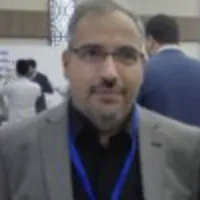Publish with Us
Mathematics & Physics Group
International Journal of Physics Research and Applications- ISSN:2766-2748 IJPRA
Chemistry Group
Biology Group
Annals of Proteomics and Bioinformatics- ISSN:2640-2831 APB
Archives of Biotechnology and Biomedicine- ISSN:2639-6777 ABB
Insights in Biology and Medicine- ISSN:2639-6769 IBM
Journal of Forensic Science and Research- ISSN:2575-0186 JFSR
Journal of Plant Science and Phytopathology- ISSN:2575-0135 JPSP
Pharma Group
Engineering Group
Clinical Group
Medical Group
autologous hematopoietic stem cell transplantation
Search by University/Institution
Enter your University/Institution to find colleagues at HSPI.
Ensuring author's satisfaction with
- Friendly and hassle-free publication process
- Less production time of articles
- Constructive peer-review
- Enhancing journal reputation
- Regular feedback system
- Quick response to authors' queries
Most Viewed Keywords
- Essential oils
- Nanodimensional pectin
- COVID-19
- Parkinson’s disease
- Periprocedural haemoglobin reduction
- Arduino nano
- Aflibercept
- Hip dysplasia
- Posterior tibial nerve stimulation
- Aortic valve stenosis
- Abdomino-pelvic abscesses
- Anxiety
- Saccharomyces cerevisiae
- Rhabdomyosarcoma
- Acute pneumonia
- Cancer
- Biopharmaceutical
- Women farmers
- Spinal Muscular Atrophy (SMA)
- Resonance
Search Articles by Country
Get all latest articles in all Heighten Science Publications Inc journals by country.
Testmonials
![]()
Great, thank you! It was very efficient working w/ your group. Very thorough reviews (i.e., plagiarism, peer, etc.). Would certainly recommend that future authors consider working w/ your group.
David W Brett
![]()
To the editorial team at HSPI and the Journal of Clinical Nephrology: Thank you so much for your hard work and collaboration in bringing our article to life. Your staff was responsive, flexible, and ...
Alejandro Munoz
![]()
Thank you very much for accepting our manuscript in your journal “International Journal of Clinical Virology”. We are very thankful to the esteemed team for timely response and quick review proces...
Abdul Baset
![]()
I am very much pleased with the fast track publication by your reputed journal's editorial team. It is really helpful for researchers like me from developing nations. I strongly recommend your journ...
Badri Kumar Gupta
![]()
I do appreciate for your service including submission, analysis, review, editorial and publishing process. I believe these esteemed journal enlighten the science with its high-quality personel.
Bora Uysal
![]()
The submission is very easy and the time from submission to response from the reviewers is short. Correspondence with the journal is nice and rapid.
Catrin Henriksson
![]()
Thank you for your attitude and support. I am sincerely grateful to you and the entire staff of the magazine for the high professionalism and fast quality work. Thank you very much!
Igor Klepikov
![]()
Your journal has accomplished its intended mission of providing very effective and efficient goals in dealing with submissions, conducting the reviewing process and in publishing accepted manuscripts ...
John St. Cyr
![]()
Regarding to be services, we note that are work with high standards of professionalism translated into quick response, efficiency which makes communication accessible. Furthermore, I believe to be muc...
Amélia João Alice Nkutxi
![]()
Submission of paper was smooth, the review process was fast. I had excellent communication and on time response from the editor.
Ayokunle Dada
HSPI: We're glad you're here. Please click "create a new Query" if you are a new visitor to our website and need further information from us.
If you are already a member of our network and need to keep track of any developments regarding a question you have already submitted, click "take me to my Query."



